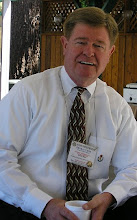 Plan USA's earthquake response: phase 1 and phase 2 activities:
Plan USA's earthquake response: phase 1 and phase 2 activities: Plan is responding immediately, starting with providing water, food, and hygiene materials to those in the various makeshift internally displaced persons camps in the Port-au-Prince and Jacmel areas.
Plan will also be responding in the seven field office areas in the earthquake zone, including Jacmel’s surrounding areas, Cayes-Jacmel and Croix-des-Bouquets, which are severely affected. Communications have now been partially re-established, and all 143 Plan staff are safe (although one is hospitalized with non-life-threatening injuries) and all staff have been assigned to earthquake response. Additionally, Plan is sending disaster management experts in child protection, earthquake response, water sanitation and hygiene (WASH), logistics, communications, ICT in emergencies, and other support staff from Plan Dominican Republic, the regional office in Panama and International Headquarters in the UK.
Plan is working closely with government, emergency services and other organizations to respond to the immediate needs of children in the region and to assess the situation. During previous emergencies such as the hurricanes of 2008, Plan field offices have begun response immediately in the first 24 hours, even before outside help arrived and before communications were re-established.
Plan Dominican Republic is acting as a hub for these operations and will coordinate all the logistics, including transportation between Dominican Republic and Haiti.
Plan’s priorities are to work across the affected areas to provide immediate and longer term relief, and also to ensure the rights of children are protected during this response. A Rapid Needs Assessment is currently being undertaken to ensure that Plan’s long term response is effective, efficient and targets the most vulnerable.
Plan will also be responding in the seven field office areas in the earthquake zone, including Jacmel’s surrounding areas, Cayes-Jacmel and Croix-des-Bouquets, which are severely affected. Communications have now been partially re-established, and all 143 Plan staff are safe (although one is hospitalized with non-life-threatening injuries) and all staff have been assigned to earthquake response. Additionally, Plan is sending disaster management experts in child protection, earthquake response, water sanitation and hygiene (WASH), logistics, communications, ICT in emergencies, and other support staff from Plan Dominican Republic, the regional office in Panama and International Headquarters in the UK.
Plan is working closely with government, emergency services and other organizations to respond to the immediate needs of children in the region and to assess the situation. During previous emergencies such as the hurricanes of 2008, Plan field offices have begun response immediately in the first 24 hours, even before outside help arrived and before communications were re-established.
Plan Dominican Republic is acting as a hub for these operations and will coordinate all the logistics, including transportation between Dominican Republic and Haiti.
Plan’s priorities are to work across the affected areas to provide immediate and longer term relief, and also to ensure the rights of children are protected during this response. A Rapid Needs Assessment is currently being undertaken to ensure that Plan’s long term response is effective, efficient and targets the most vulnerable.
Phase 1, the Emergency Phase: In the first 90 days the focus is on:
· Water, sanitation, and hygiene (WASH),
· Temporary shelter and non-food items (including kitchen utensils, soap, etc),
· Food,
· Medical supplies and health services; and
· Child protection.
Phase 2, the Recovery Phase: During months 3 to 12 and beyond, the focus is on:
· Recovery WASH activities, such as repair of water systems,
· Rebuilding shelter,
· Child protection and psychosocial support,
· Education in emergencies;
· Child-focused emergency education and Disaster Risk Reduction, and
· Potential rehabilitation, reconstruction and equipping of buildings like schools and hospitals.
· Water, sanitation, and hygiene (WASH),
· Temporary shelter and non-food items (including kitchen utensils, soap, etc),
· Food,
· Medical supplies and health services; and
· Child protection.
Phase 2, the Recovery Phase: During months 3 to 12 and beyond, the focus is on:
· Recovery WASH activities, such as repair of water systems,
· Rebuilding shelter,
· Child protection and psychosocial support,
· Education in emergencies;
· Child-focused emergency education and Disaster Risk Reduction, and
· Potential rehabilitation, reconstruction and equipping of buildings like schools and hospitals.

No comments:
Post a Comment